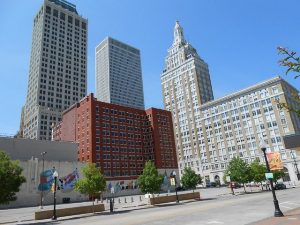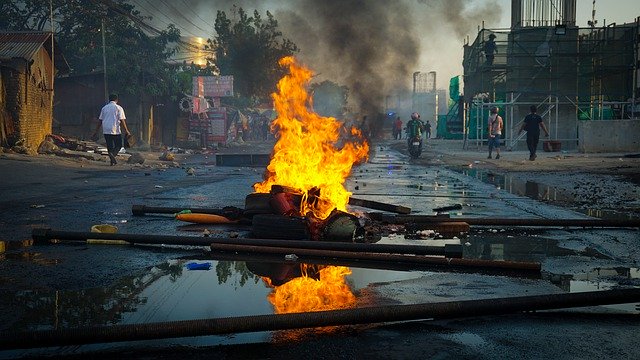Tulsa, Oklahoma is facing a lawsuit demanding reparations over the 1921 massacre that claimed the lives of nearly 300 African Americans.
A lawsuit was recently filed against the city of Tulsa, Oklahoma, and other government localities over a massacre that happened almost a century ago. As part of the lawsuit, the plaintiffs are seeking reparations. One of the plaintiffs is Lessie Benningfield Randle, a 105-year-old survivor of the 1921 race massacre that claimed the lives of 300 African Americans. The relatives of other victims are also plaintiffs in the case.

According to the suit, which was filed in Tulsa County District Court, Randle and others continue to suffer from “emotional and physical distress that continues to this day” from the attacks led by white mobs that killed” so many in the city.
What happened almost a century ago, though? For starters, the attack occurred in Tulsa’s Greenwood district. During the incident, mobs moved through the area, “torching and looting buildings and wreaking damage on homes in an area commonly referred to as Black Wall Street.” Prior to the attack, Greenwood was a thriving business center made up of “40 blocks of restaurants, hotels, and theaters owned and operated by Black business owners.”
The suit argues the 1921 massacre was a “public nuisance based on the state’s statutes, affecting an entire community or borough simultaneously while damage inflicted upon individuals may be unequal.” Though the suit does not mention specific damage amounts, “it estimates that property damages for residents amount to between $50 million and $100 million in today’s currency.” Currently, the plaintiffs are seeking a court declaration that the “public nuisance created by Defendants is capable of being abated through the expenditure of money and labor.”
Damario Solomon-Simmons, one of the attorneys representing the plaintiffs, wrote an op-ed earlier this year that appeared in the Los Angeles Times. In the piece, he noted that the “idea of reparations for past racial injustices is finally losing its taboo.” He added, “The urgency of the protests across America shows that reforms won’t last unless we pay for the crimes of the past.” He and other attorneys backing the suit argue the “effects of the massacre are still impacting parts of the community today.” Additionally, they argue that “unemployment among Black Tulsans is more than double that of white people, adding that the median household income for Black residents, on average, is $20,000 less than white residents.”
This isn’t the first time reparations have been sought over the massacre. In fact, they were also sought back in 2005, “but the Supreme Court rejected an appeal to hear the case.”
Sources:
Lawsuit seeks reparations from city of Tulsa over 1921 massacre
Lawsuit seeks redress for 1921 massacre of Tulsa’s Black district


Join the conversation!